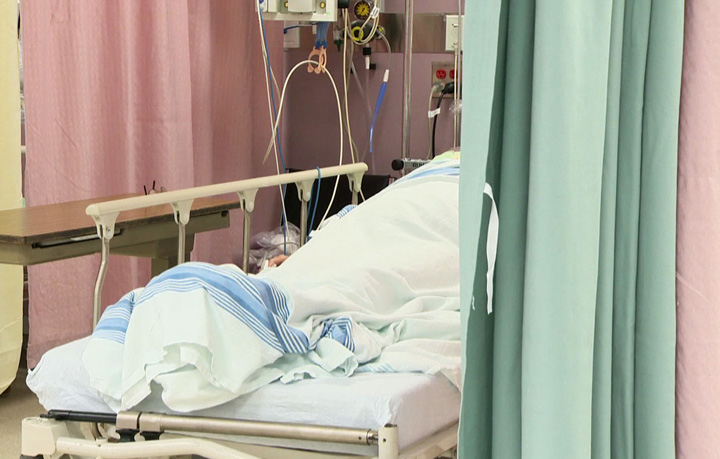TORONTO – One couple renewed their wedding vows. Another had a date night. A group of family and friends gathered for one last sing-along.

These are some of the outcomes that resulted from a Hamilton hospital’s novel “three wishes” program, an effort to make dying in an intensive care unit a bit less impersonal.
“Humanizing the environment when somebody is dying can be a challenge in the ICU. And it’s this challenge that we’re trying to address, among others … with the three wishes program,” explains Dr. Deborah Cook, a professor of medicine at McMaster University and an ICU physician at St. Joseph’s Hospital in Hamilton.
Cook is also the lead author of a study that analyzed the program, which has been running at St. Joseph’s for the past 2 1/2 years. The article is published in this week’s issue of the journal Annals of Internal Medicine.
READ MORE: Family’s difficulty accepting death a barrier in end-of-life care, Canadian study suggests
On the face of it, the program appears simple: elicit wishes from dying patients, their loved ones and the medical team responsible for their care. And then try to make them come true.
But this is not the Children’s Wish Foundation, which tries to fulfil the wishes of kids with terminal illnesses. No one has asked to go to Disneyland or meet their favourite singer, Cook said.
- Buzz kill? Gen Z less interested in coffee than older Canadians, survey shows
- ‘She gets to be 10’: Ontario child’s heart donated to girl the same age
- Bird flu risk to humans an ‘enormous concern,’ WHO says. Here’s what to know
- Canada updating sperm donor screening criteria for men who have sex with men
Instead, the thrust is to remember and honour the dying person in an environment that is generally more focused on seeing the person as a patient.
The ICU environment, Cook says, is “technologically oriented and somewhat cold and far removed from home, which is where most people say they would like to die.”
“So in that setting we were trying to develop a program that would help to humanize the dying process and make the death experience more personal.”
READ MORE: Majority of Canadians support assisted dying, poll says
When it appears that death is inevitable and imminent, someone from the ICU team will start to collect wishes for, and if possible from, the person. In the study, only a small portion of the wishes came from the patients themselves because they were simply too sick.
“We haven’t had requests for glamorous or unrealistic wishes. Most are simple, special, situational and implementable,” Cook says.
“They include things like going outside to see the sunshine again. Having a final toast in a patient’s room. Bringing in a beloved family pet for a final visit.”
She says the program’s team follows up with family members after the death and inevitably finds they report the process of identifying wishes and working to make them reality helped them cope with the pain and grief of their loved one’s death.
READ MORE: End-of-life care – 5 things patients say doctors should talk about
“Families have told us it has a long-lasting impact on their experience when their loved one dies. And clinicians tell us how it reminds them of why they went into health care. Those are clear messages from the interviews,” Cook says.
“The program is really a vehicle for the human connection that we all seek in times of tragedy.”



Comments